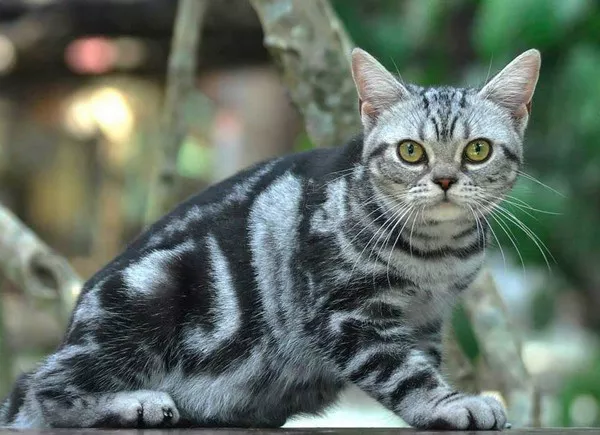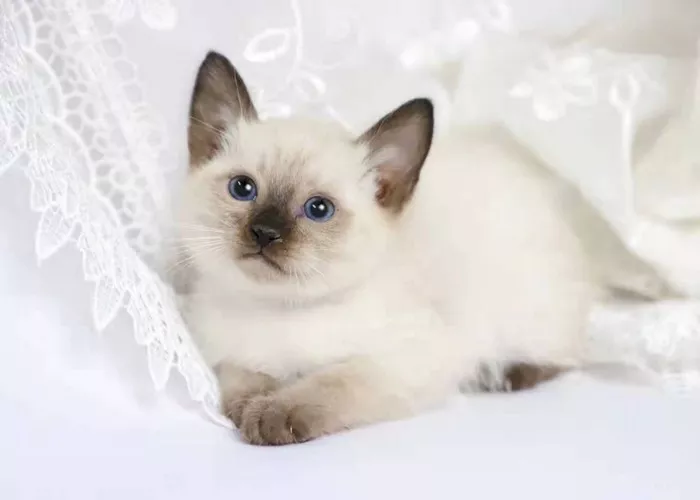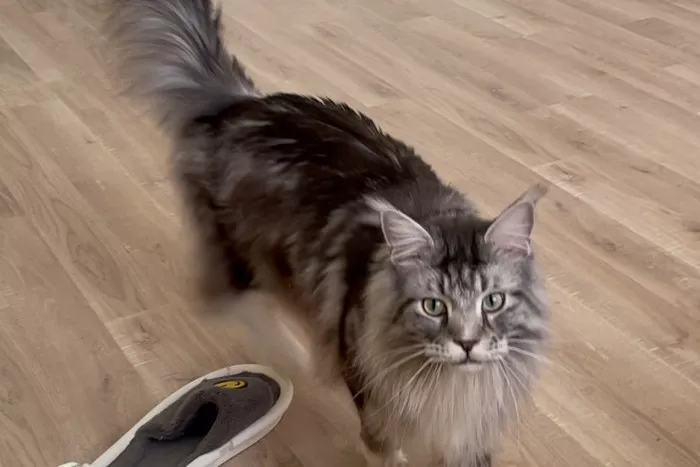Cats have had a time-honored history as working felines on dairy farms, where they are traditionally rewarded with pans of fresh warm milk. Artwork of cats and even the books we learned to read as children feature cats and kittens being offered milk as their primary meal. But should cats drink milk? Many people are startled to learn that most cats can’t digest dairy foods and are lactose-intolerant!
Why Can’t Cats Digest Milk?
Lactase is the enzyme required for digestion of lactose, the sugar in milk. The production of lactase decreases as mammals pass weaning, and milk from their nursing mother is no longer needed. When adult cats drink milk, the undigested lactose is fermented by bacteria in the colon, causing gas and bloating. All of this gut activity makes for a very uncomfortable kitty.
You probably have human friends who are lactose intolerant, or perhaps you are yourself. In that case you can probably understand why it would be unhealthy for cats to drink milk, especially as a major part of their diet.
Do Cats Like Milk?
It may be precisely because we see cats enjoying milk when it’s offered that we humans have a hard time accepting that cow’s milk isn’t actually good for them. Because cats are considered finicky (even though many are not) we may have a hard time denying them something they seem to love so much! While a few cats will walk away from a saucer of milk, most cats love the taste long after kittenhood has faded.
Can Kittens Safely Drink Cow’s Milk?
Although kittens do produce some lactase before they are weaned, cow’s milk is still too high in lactose for their sensitive digestion.
Tiny kittens need milk that is perfectly balanced for feline health. If kittens can’t nurse from their mother, commercial kitten milk formulas are readily available in stores as a liquid or a powder that only requires the addition of water. Commercial kitten formula is also a good supplement for a mother cat who needs extra calories and nutrition while nursing her kittens. Kittens will start lapping water by the time they are around 4 weeks old.
Can Cats Drink Any Of The Many Alternative Milks That Are Now Available To Buy?
There are some specially designed cat milks on the market, however even these should be given only as a treat, in moderation. These treat-type milks are absolutely not intended for nursing kittens. Always be certain you are purchasing a kitten milk formula that is intended to appropriately replace mother’s milk.
Some alternatives to cow’s milk that are marketed for human are safe for cats, also as a treat:
Plant-based milks like almond, coconut, soy, oat and rice milks are lactose-free. They are typically lower in fat and calories than cow’s milk, although coconut milk is quite high in fat and oils. It’s important to check the label on alternative milks to avoid those with added sugars and flavoring, if you are looking for a treat for your cat.
Lactose-free dairy milk is cow’s milk with the lactose removed and is an alternative for cats.
Milk from goats and sheep contain lactose, but at lower levels than cow’s milk.
Why Should Alternative Milk Only Be “A Treat?”
While each of these creamy drinks may be a better alternative to cow’s milk when considering lactose intolerance, fat, and calories, unfortunately all of them add unneeded calories to your cat’s diet.
59% of cats were classified as obese according to 2018 study from the Association for Pet Obesity Awareness. Obesity is the most common preventable disease in cats, in North America. It can shorten your cat’s life and makes them more susceptible to diseases like diabetes, cancer, osteoarthritis, and urinary disorders.
While we like to think that alternative milks, like almond milk, are just pressed plants, there are a lot of extra ingredients in most of them that are included to make the product similar in texture to cow’s milk so that humans can use it for similar purposes: over cereal, in coffee, etc. These extra ingredients don’t add anything helpful to your cat’s diet.
“Human grade products are usually not considering our furry friends,” says Dr. Francis. “I recommend avoiding over the counter supplements unless there have been strong safety studies showing benefits in cats and dogs.”
Treats, whether crunchy or milk-like, that you plan to use to reward your cat every day should contain vitamins and minerals that are nutritionally helpful to your cat, not just tasty calories. So, keep healthful cat treats on hand when you want to reward your cat, and save lactose-free alternatives for when you want to give your cat something extra special!



























